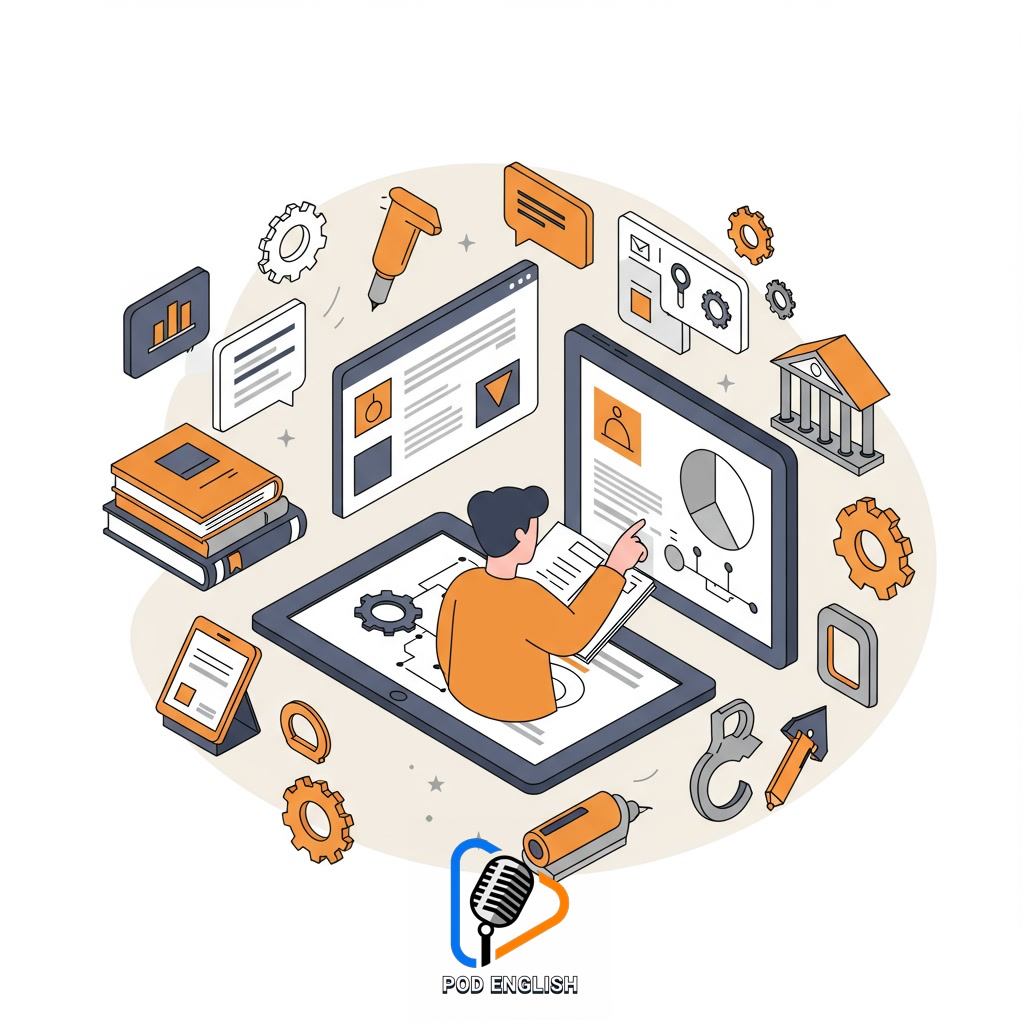Learn English
Master English for Construction and Engineering Success

This content focuses on learning English specifically for professionals in construction and engineering. It aims to equip individuals with the language skills necessary for effective communication and career advancement in these technical fields. By mastering specialized vocabulary and communication strategies, participants can enhance their success.
Table of Contents
- Section 1: The Critical Role of English in Construction and Engineering
- Section 2: Core English Skills for Industry Professionals
- Section 3: Essential Vocabulary and Technical Terminology
- Section 4: Effective Communication in Project Environments
- Section 5: Strategies for Learning and Improving Industry-Specific English
- Section 6: Leveraging English Proficiency for Career Advancement
Section 1: The Critical Role of English in Construction and Engineering
In today’s interconnected world, English is no longer just an advantage but a fundamental necessity for success in the construction and engineering fields. These industries are increasingly globalized, involving multinational teams, international standards, and complex projects spanning different countries. Effective communication is paramount to ensure safety, precision, and efficiency on site and in the office. English serves as the common language for sharing critical technical information, understanding project specifications, collaborating with diverse colleagues and clients, and accessing global research and technology. Mastering English allows professionals to navigate technical documentation, participate in international tenders, utilize specialized software, and advance their careers by connecting with global opportunities. Without strong English skills, engineers and construction professionals face significant barriers to effective collaboration, knowledge acquisition, and professional growth in these dynamic sectors.

Section 2: Core English Skills for Industry Professionals
Building upon the necessity of English in globalized construction and engineering, mastering core language skills is paramount. This section delves into the fundamental abilities you must cultivate. Primarily, this involves developing strong listening comprehension to accurately understand instructions, technical discussions, and safety briefings, both on-site and in meetings. Equally vital is clear and concise speaking, enabling you to articulate ideas, report progress, and collaborate effectively with colleagues, clients, and contractors from diverse linguistic backgrounds. Furthermore, proficiency in reading is essential for interpreting technical documents, blueprints, specifications, and manuals correctly. Finally, effective writing skills are crucial for composing professional emails, reports, proposals, and documentation, ensuring accurate record-keeping and clear communication throughout projects. These core skills form the bedrock for successful communication in the industry.

Section 3: Essential Vocabulary and Technical Terminology
Following the discussion of core language skills, mastering the specific vocabulary and technical terminology used in construction and engineering is crucial for effective communication and understanding. These fields have unique jargon, acronyms, and precise terms for materials, processes, equipment, and safety protocols. Simply knowing general English is insufficient; you must actively learn and internalize this specialized language. This involves studying glossaries, technical manuals, blueprints, and industry-specific publications. Understanding these terms accurately ensures clarity in documentation, instructions, and discussions, preventing errors and ensuring safety on projects. Developing a robust technical vocabulary is an ongoing process that significantly enhances your ability to participate confidently in professional settings and advance your career.

Section 4: Effective Communication in Project Environments
Building upon technical vocabulary, effective communication in construction and engineering project environments involves applying language strategically in real-world scenarios. This means clearly and precisely conveying complex technical information during team meetings, site inspections, and client discussions. Mastering phrases for negotiation, clarification, and problem-solving is vital for successful collaboration with diverse teams, including engineers, contractors, and clients. Practicing active listening and summarizing information accurately ensures everyone is aligned and misunderstandings are minimized. Developing the ability to present technical data clearly in reports and presentations is also crucial for influencing decisions and ensuring smooth project execution.

Section 5: Strategies for Learning and Improving Industry-Specific English
Building upon technical vocabulary, effective communication in construction and engineering project environments involves applying language strategically in real-world scenarios. This means clearly articulating technical concepts, discussing plans, negotiating terms, and collaborating effectively. To master these skills, adopt specific learning strategies. Immerse yourself in authentic industry materials such as technical specifications, safety manuals, and project documentation to see language used in context. Actively practice speaking by explaining processes, participating in simulated meetings, or describing technical drawings. Utilize specialized online resources, language learning apps focused on technical English, and industry-specific vocabulary builders. Regularly review and apply new terms and phrases in practice conversations or written exercises. Consistent, focused learning is key to improving your command of English for construction and engineering success.

Section 6: Leveraging English Proficiency for Career Advancement
Building upon effective communication, mastering English opens significant doors for career advancement in construction and engineering. Proficiency allows professionals to participate in larger, often international, projects and collaborate seamlessly with diverse global teams and clients. It is essential for understanding intricate technical documentation, specifications, and international standards, thereby reducing errors and improving project outcomes. Furthermore, strong English skills enhance your ability to present ideas clearly, negotiate effectively, and build stronger professional relationships. This makes you a highly valuable asset, leading to increased opportunities for promotion and leadership roles within your field.














